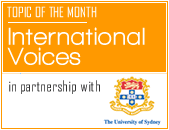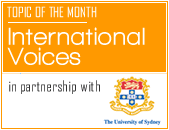
Spanish newspaper El Mundo claims that one in every six members of the Parliament is either xenophobic or Europhobic.
In the June 4-7 elections of the European Parliament the Social Democrats experienced a severe downfall, whilst extremist right-wing parties made their way into European Union politics. The Social Democrats lost in respect to the 2004 elections in all but four of the twenty seven member states of the EU; Malta, Romania, Greece and Sweden.
Simultaneously, several thousand kilometres away, Indian students were becoming the victims of brutal racial attacks; in Adelaide, Sydney and, most notoriously, Melbourne.
These very distant and seemingly unrelated events are connected by the common global context we now face. The economic crisis has not only caused unemployment and recession but, what is worse, it has heightened tensions and discrimination in various countries; especially those with a high percentage of immigrants.
Immigration has, traditionally, always been welcomed whenever there is a shortfall in the workforce. However when problems arise, foreigners are often amongst the first to be blamed; accussed of taking up the jobs that would otherwise be occupied by nationals, and consuming vital resources.
This is now happening, to different extents, in both Australia and Europe.
In the Netherlands, the racist, anti-Islamic and anti-EU Party for Freedom led by Geert Wilders’ has become the country’s second force with 17% of the votes. In Hungary, another extreme-right party, Jobbik, which even holds a para-military arm, has obtained 14.77% or 427,000 votes.
Slogans such as “The West in the hands of Christianity” or “Hungary belongs to the Hungarians” have become commonplace as part of the campaign slogans and discourse of these extreme right-wing parties and the likes.
These politicians are not a band of outcasts. Given the large number of votes they have received, their poularity can be interpreted as a clear expressions of the hatred and bitterness felt by many Europeans towards immigrants, as aggravated in the midst of a world depression.
In Hungary, one of the nations worst stricken by the crisis;
Maria Balogh, a gypsy woman killed on 3 August 2009, is one of the most recent victims of this sentiment.
Here in Australia, a string of virulent attacks on Indian students and the poor response both by the Government and police have sparked a series of protests in Melbourne and Sydney with a call for justice to be taken. Some mainstream politicians, however, argued that these incidents had not been racially motivated. Simon Crean, the Trade and Acting Foreign Minister claimed, “
Australia I believe is an inclusive, welcoming, tolerant society”.
One thing is clearly indisputable: whether in Australia or Europe, racism and discrimination have existed for a long time and in recent months it has increased.
In the European Parliament, the extreme-rightists have already paved their way into politics; although, due to their internal differences, they will be unable to form a solid group to push their policies forward. But the underlying fact of the matter, and what is most appalling, is that it was the people that gave them their support.
The response that governments will take in light of these phenomenon and other incidents of this nature should they occur in the future is an important issue. If governments turn a blind eye, the situation will only worsen, with tensions and disputes accumulating.
Let us then hope that such matters be addressed accordingly. Unfortunately, by the looks of it, it wouldn’t be too preposterous to say it’s likely that the types of incidents that occurred in October and November in different banlieues across France, will arise again in other parts of the globe.
Magdalena Rojas Infante is a freelance journalist with a particularly interest in immigration related issues. Magdalena previously volunteered at the Centro de Atención Social al Inmigrante (Center of Social Assistance for Immigrants) in Madrid, Spain. She obtained her Bachelor degree in History from Pontificia Universidad Catolica with a Minor in Asian Studies and is currently enrolled in the Master of Media Practice at the University of Sydney.

 In most European countries, immigrants account for approximately 10% of the population and the figure rises to 30% in the great cities; but as studies and research shows, most Europeans hold a rather pessimistic view with regard to foreigners. According to a poll cited by Christopher Caldwell, an American journalist who writes for the Weekly Standard and the Financial Times, “only 19%think immigration to be a good thing for their country; 57% think that the country has too many foreigners.”
In most European countries, immigrants account for approximately 10% of the population and the figure rises to 30% in the great cities; but as studies and research shows, most Europeans hold a rather pessimistic view with regard to foreigners. According to a poll cited by Christopher Caldwell, an American journalist who writes for the Weekly Standard and the Financial Times, “only 19%think immigration to be a good thing for their country; 57% think that the country has too many foreigners.”












